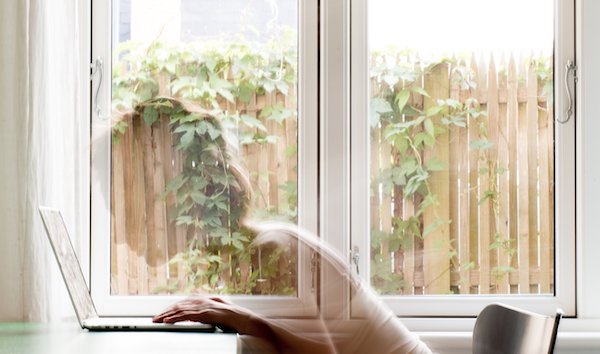[Singing] Twinkle twinkle little star, how I wonder what you are
Up above the world so high, like a diamond in the sky
Social media offer a broad range of tools for digitizing ephemeral moments of day-to-day life and sharing these representations with others and integrating them into networked, dynamic archives.
Women too increasingly use social media to document and share their everyday lives as mothers and at the same time invite practices related to the production and circulation of social media content into their everyday family lives.
A social media genre that has become popular among mothers is YouTube video blogging or “vlogging,” and over the last around nine years a rather big community has developed around mommy vlogs.
“Hi! Welcome back to my channel! This is my birth story video. I’m one week postpartum…”
The mommy vlogging community is not clearly spatially bounded; instead it consists of a number of subcommunities that gather around specific mommy vloggers and the various social media sites that they use.
In mommy vlogs women represent life as a mother through recorded enactments of motherhood.
“It’s been a bit of a busy morning for me. I have been getting my jobs done tidying up, and Georgie and Poppy decided to draw tattoos all over each other, so I'm gonna go stick them in the bath in a minute. I’ve just got all the clothes ironed…”
So, in various way, stories told through mommy vlogging travel beyond the people who’ve actually experienced the events that have been depicted or have even been eyewitnesses to them. Because mommy vloggers not only narrate their own lives or their own experiences but also the experiences of other people who become on-screen interactants. Furthermore, audiences to vlogs through their engagement with vlogs can reinterpret and in various ways reframe the meaning of experiences of on-screen interactions such as mommy vloggers but also their family members. So what we see happening in the mommy vlogging community is very much a coming together of people and technologies and spaces that fosters a collaborative process of meaning making, where people collaboratively find ways to understand what it means to be a mother today and what life as a mother entails.
“Tomorrow, Lee is getting a vasectomy… and I’m not sure what’s happened to me over the last few hours really, you know, it’s really hard to explain. I’ve just kind of started freaking out a little bit, I just kind of started panicking if you want to put it that way. So what does it mean to be pregnant? How does pregnancy change the way you relate to your body? What does it mean to give birth and afterwards to suddenly be a mother, how is this transition done? How does it feel to clean the floor over and over and over again?”
These types of discussions are carried out in the mommy vlogging community.
At the same time many mommy vloggers talk about how to them it’s really important that YouTube vlogging allows them to build archives of these documentations of family life that they can share with their children and with other family members and friends.
“My primary reason for putting so much work into it, is because I’ve got all these memories of the kids and things that we do to look back on. I didn't think from when I first started vlogging it would turn into something that I’d still be doing nine years later.”
What distinguishes mommy vlogging from earlier practices such as family photography or home video-making is that the archives that consist of an accumulation of mommy vlogs are very much interactive and also networked. So, it’s not only mommy vloggers who in isolation put together these documentations of family life over time.
Mommy vlogging, or interaction in the mommy vlogging community, also needs to be understood with reference to a broader commercialization of social media which has led to a commodification of experience.
“Over the years YouTube has evolved so much, especially with this kind of mommy vlogger community, and I feel really lucky to be a part of it.”
“Over the last couple of years, I’ve kind of seen it change direction slightly with brands wanting to work with vloggers, which is an amazing opportunity. I’ve worked with some fantastic brands which I didn’t think I’d ever do anything like that, but like I said, the primary thing is the memories for me, but working with brands is just an added bonus.”
Mommy vloggers suddenly can monetize these documentations of everyday life, and then they can also make various deals with companies and incorporate branded products into their videos and make branded videos, and they need to think about how they can balance these activities, having to do with monetary gain, with activities that have to do with being part of a community and building an archive for them to later look back on.
So, the interactivity and commodification of mommy vlogs presents mommy vloggers with certain opportunities, but then also entails at least partly a loss of ownership of the representations of their families’ lives that accumulate on social media.
“Yeah… hope that you’re all right and you’ve had a great weekend. I just wanted to come on and talk. So yes, I'll see you soon.”




